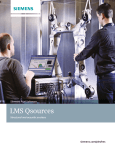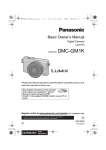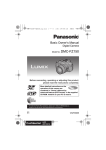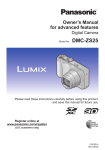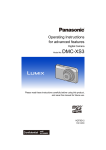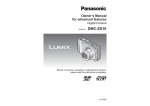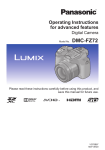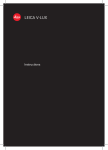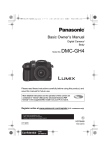Download Pyle PDWM8900 microphone
Transcript
IMPORTANT: Pack carefully in original package if possible. We are not responsible for damage incurred in returning items for repair. A letter stating your exact street address, daytime phone number, and the problem you are experiencing should be included. You must also enclose a copy of original receipt as proof of date of purchase. PDWMB400 ~~PYLF Brooklyn, NY 11204 1-800-444-5671 Monday Through Thursday.gAM to 5PM Friday gAM to 1 PM Eastern. PDWMB700 PDWMB400 PDWMB700 PDWMB900 8 Mic Professional Handheld VHF Wireless Microphone System Some common problems and their solutions are printed below. Thanks for purchasing our wireless meeting microphone. Please read these instructions carefully so that you fully understand how to operate this microphone. Store these instructions in a safe place for future reference. - Uses VHF 170-270 MHZ frequency to avoid interference. - Uses multilevel high frequency and midfrequency narrowband filters to avoid interference. - Quartz crystal oscillating circuits guarantee a steady frequency. - Audio compression and expansion technology to increase the dynamic range and lower feedback. - Uniform cardioid pickup pattern isolates the main sound source –your voice – and minimizes background noise - Effective, built-in spherical wind and pop filter - Longest operating distance: ~100 yards. - Best effective distance: ~50 yards. 1. Ensure the host receiver has a solid connection with the microphone before use. 2. Do not drop, throw, or otherwise damage your equipment to ensure its longevity. 3. Keep away from water – this microphone is not waterproof. 4. Keep away from electromagnetic fields, high voltage power sources, and large metal objects. 5. Switch off the transmitter when changing the battery. 6. Take out the battery if you do not plan on using the microphone for a long time. 7. Unplug the receiver if you do not plan on using it for a long time. 8. This equipment is not user-repairable. Contact the manufacturer if equipment fails. 1. Please take note of the following workflow diagram for reference on connecting this machine. 2. Make sure your system is set to the correct power (110 V). Then set the volume of your sound equipment. 3. Adjust the mix so that the users of MIC 1 and MIC 2 sound good together. 4. Unplug the machine if you will not be using it for a long time. - Keep the machine at least 3 feet above the ground and 3 feet away from walls. - Pull the antenna upright. - Your equipment will operate best if there is no physical barrier between the microphone and the receiving antenna. - Keep the receiver away from digital equipment, such as CD players, computers, or other radio equipment. I Front Panel I IHandheld Transmitter ~ o tj; o 0 t} o 0 (0) o o (0) 0 0 (0) o 0 (0) o 0 (0) 0 T T T T T T T I 1 2 3333333 I.Powerswilch 3.Volume adjust I Back Panel o 4 >20mW Antenna Hide inside Pre-weight 50 uS Cartridge Moving dynamic coil Battery consumption <30mA Battery life 8 H time of duration Temperature range -10 --55 i 2.Power indicator 4.Receiving indicator Body pack transmitter ~ I o AN'r.D 99 4 1. Antenna 3 Radio output power 2.3 2.Audio output 4. balanced output o 5 o Radio output power >20mW Carrying frequency below the min carrying frequency 40dB Pre-weight 50 uS Cartridge condenser Battery consumption <30mA Battery life 8 H time of duration Temperature range -10 --55 i 3.mixed- balance output 5.DC power 6 3 The light on the microphone indicates that the battery has power and that the microphone is functioning.







